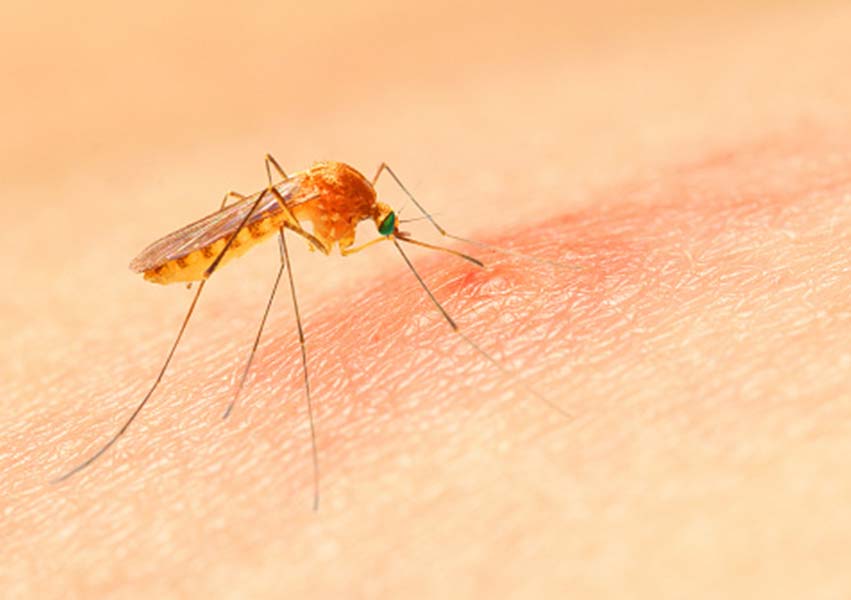The longer days and warmer temperatures may have you heading outside for a little fresh air and sunshine.
Just don’t let bug bites spoil your summer fun.
The CDC is warning that pest-borne illnesses have tripled in the United States over the past decade, with ticks — which, by the way, are arachnids, not insects — accounting for over 60% of the total. Mosquito-borne illnesses came in second.
And while anyone can be bitten or stung, AARP notes that older adults, as well as children, are at greater risk of disease and severe reactions to insect or arachnid venom.
- Older adults are at greatest risk of developing a severe form of West Nile virus, which is carried by mosquitoes. Other common mosquito-borne illnesses include Dengue, Zika and chikungunya.
- Common tick-borne illnesses include Lyme disease, which typically peaks in adults ages 50 to 55 and children ages 5 to 9.
- Stinging insects include bees, hornets, yellow jackets, wasps and fire ants. In most people, the venom only causes itching and mild pain, but can cause a life-threatening allergic reaction in others.
- Poisonous spiders in the United States include brown recluse, black widow, hobo spiders, grass spiders and wolf spiders.
How Can You Avoid Insect Bites?
Here are some ways to make bug bite protection part of your plan for a safe and healthy summer.
- Use caution when near nests or hives.
- Keep your skin covered in areas where biting or stinging pests may be present. This includes hats paired with light, breathable long-sleeved shirts and long pants.
- Avoid products that attract stinging insects. Bees, for example, love the smell of many perfumes and lotions with fruited scents.
- Going on a picnic? Keep foods and beverage containers covered to avoid attracting insects.
- Use an EPA-approved repellent. Treat outdoor gear and clothing before heading outside.
- If you have pets, make sure they’re treated for fleas and ticks.
- Install screens on windows and doors to keep creepy crawlies from getting into your home or apartment.
- Get rid of standing water in planters, trash cans and other locations on porches or patios.
What Should You Do if You Have an Insect Bite?
In spite of our best efforts, most of us will still suffer the occasional bite or sting. Even if you don’t have an insect allergy, you may notice one or more common symptoms:
- Swelling
- Redness
- Rash
- Pain near site or in muscles
- Itching
- Heat near site
- Numbness or tingling
For most people, bites and stings will heal on their own and can be treated at home with very simple first aid:
- If you have a sting, gently remove the stinger from your skin
- Wash the affected area with soap and water
- Apply ice as needed to reduce swelling
- Use anti-itch creams or oral pain relievers as desired
- A thin paste of baking soda and water may calm itchy skin
When should you see a doctor? AARP offers a few guidelines.
- Seek emergency care if you’ve been bitten by a black widow or brown recluse spider, or a scorpion.
- After any insect or arachnid bite, contact your doctor if you experience more severe symptoms:
-
- Nausea
- Dizziness
- Difficulty breathing
- Rapid heartbeat
- Flu-like symptoms
- Finally, insect allergies can be life-threatening and must be treated immediately:
-
- Call 911
- Loosen the victim’s clothing
- Lay victim on their side
- Perform CPR if breathing stops
If you have an insect allergy, your doctor can prescribe epinephrine, which can be injected to prevent anaphylactic shock. You must carry it with you at all times.
Knowing how to avoid and treat insect bites should be a top priority for staying safe outdoors, especially during the summer months.






